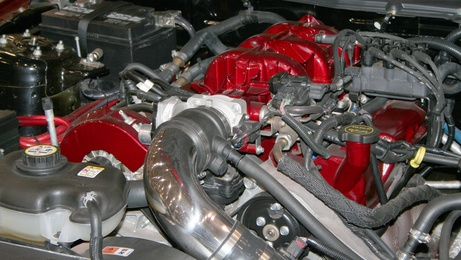
Most transmission filters on vehicles are made of felt; this material will accumulate dirt particles and may become clogged, so it is recommended that they should be replaced every two years or 30,000 miles. Transmission fluid acts as a lubricant for the moving parts inside your transmission as well as a coolant for transferring power from the engine to the transmission. This fluid should be checked at least every six months.
In a manual transmission, you depress the clutch which transfers power from the engine to the transmission; then you select a gear and release the clutch, while applying power to the accelerator, to move the car. If the transmission filter is clogged, the clutch will slip or fail to fully engage as you try to shift the car into a gear; and as you accelerate, the engine will rev up, but the car will not pick up speed.
Another symptom of a clogged transmission is if the vehicle starts to move then suddenly stops. If you try re-starting the vehicle and it stalls again, you may need to replace the filter.
If your vehicle has a standard transmission and you hear a whirring noise as though the engine is revving up between gears but not engaging, you may have a clogged transmission. With an automatic transmission, you will hear a high-pitched, whining noise as you shift from park to drive, and the vehicle's movement will be jerky.
Another symptom of a clogged transmission filter is a delay or hesitation when the vehicle is backing up. Your vehicle will hesitate for a few seconds before moving in reverse.